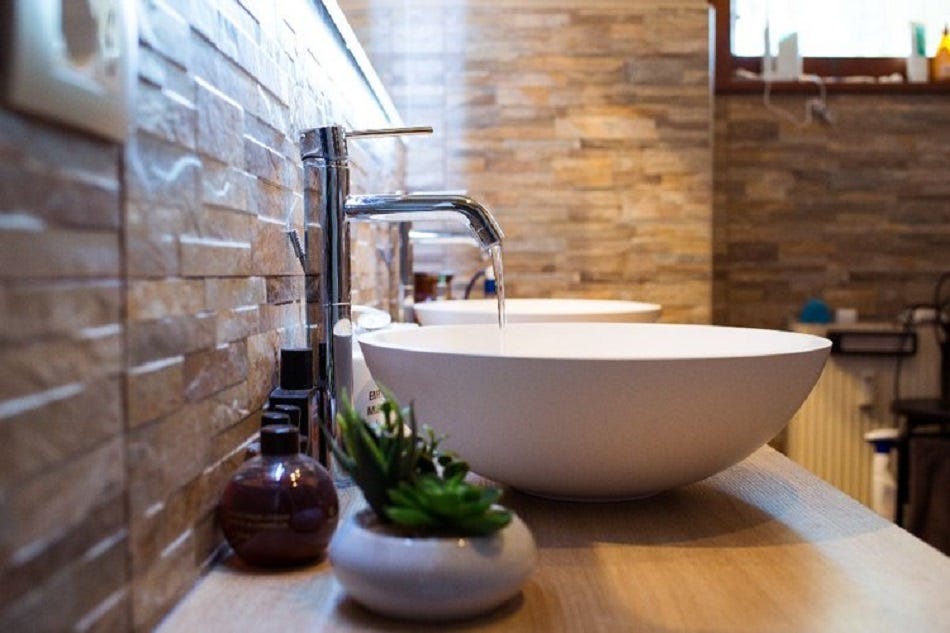New Homeowner's Guide to Bathroom Plumbing: Best Advice
New Homeowner's Guide to Bathroom Plumbing: Best Advice
Blog Article
We have found this post involving Essential DIY Bathroom Plumbing Tips Every Homeowner below on the net and believe it made good sense to talk about it with you in this article.

For brand-new home owners, understanding and keeping washroom plumbing can save both money and time by preventing costly problems down the line. Below are some vital restroom pipes suggestions to assist you maintain everything running efficiently.
Plan For Winter
Secure your pipelines from freezing during winter by insulating pipes in unheated locations like basements, attics, and garages. Throughout extreme chilly, let cold water drip from taps offered by exposed pipes to assist stop freezing.
Set Up Normal Upkeep
Take into consideration scheduling yearly examinations with an accredited plumber. They can find concerns that you may miss, such as hidden leakages or wear and tear on pipelines and components. Regular upkeep aids expand the life of your pipes system and can avoid emergencies.
Familiarize Yourself with the Main Shut-Off Shutoff
Understanding where the main water shut-off valve is located in your house is vital. This allows you to quickly turn off the water supply in case of significant leakages or throughout plumbing emergency situations, stopping comprehensive water damages.
Consistently Check for Leaks
Little leakages can result in huge issues. Regularly check under sinks, around commodes, and near plumbing components for any indications of leakages. Seek wetness, small drips, or corrosion. Capturing and repairing leakages early can stop a lot more major damage and save water.
Keep Your Hot Water Heater
Ensure your water heater is readied to a proper temperature level (commonly around 120 degrees Fahrenheit) to stop hot and reduce energy usage. Flush the tank each year to remove debris buildup, which can decrease the efficiency and lifespan of your heating unit.
Upgrade Your Components
If your home has older fixtures, consider upgrading to more reliable versions. Modern bathrooms, showerheads, and faucets are developed to make use of less water while supplying good stress, which can dramatically reduce your water expense and environmental footprint.
Be Cautious with DIY Plumbing Repair Works
While it's appealing to deal with all home repairs by yourself, beware with pipes. Some problems may require professional know-how, specifically if they entail main water lines or sewage system fixings. Employing an expert can occasionally be extra cost-efficient than DIY, especially if it protects against more damages.
Don't Overlook Slow Drains
If your sink or tub is draining pipes slowly, it's often an indicator of a clog developing. Addressing this early can avoid a complete obstruction. Utilize a plunger or a plumbing professional's snake to clean out debris. Prevent using chemical drain cleansers as they can harm your pipelines in time.
Know What Not to Flush
Bathrooms are not garbage disposals. Stay clear of flushing anything other than bathroom tissue and human waste. Items like wipes, womanly health products, and cotton bud should be dealt with in the garbage to avoid obstructions and sewage system backups.
Install Strainers in Drains
Location strainers in your sink and tub drains to capture hair and various other particles prior to they enter your plumbing system. Cleansing the filters consistently will aid protect against accumulation and keep water moving easily.
Conclusion
Understanding and keeping your home's washroom plumbing can prevent several common issues. By complying with these necessary suggestions, you can ensure your bathroom continues to be practical and efficient, conserving you money and time over time.
Essential Plumbing Tips for Homeowners: Keep Your Pipes Flowing Smoothly
As a homeowner, understanding the basics of your plumbing system can save you time, money, and a lot of headaches. Plumbing issues can range from minor annoyances like dripping faucets to major problems like burst pipes that cause significant damage. This guide provides essential tips to help you maintain your plumbing system and tackle common issues.
Understanding Your Plumbing System
Supply System: Brings fresh water into your home from a municipal source or a well. Drain-Waste-Vent System: Removes wastewater and vents sewer gases outside. Fixtures and Appliances: Includes sinks, toilets, showers, dishwashers, and washing machines. Basic Maintenance Tips
Regular Inspections: Periodically check for leaks, corrosion, and other signs of wear and tear. Look under sinks, around toilets, and near water heaters. Know Your Main Shut-Off Valve: In case of a major leak, you’ll need to shut off the water quickly. Ensure everyone in your household knows where the main shut-off valve is located. Prevent Frozen Pipes: In cold climates, insulate exposed pipes and let faucets drip during extreme cold to prevent freezing. Use Strainers: Install strainers in sinks and tubs to catch hair, food particles, and other debris that can cause clogs. Common Plumbing Issues and Solutions
Clogged Drains:
Prevention: Avoid pouring grease down the drain and use drain screens to catch debris. DIY Fix: Use a plunger or a plumbing snake to clear minor clogs. For stubborn clogs, a mixture of baking soda and vinegar can sometimes help. Leaky Faucets:
Prevention: Replace washers and seals regularly. DIY Fix: Turn off the water supply, disassemble the faucet, and replace worn parts.

Visit Report this page